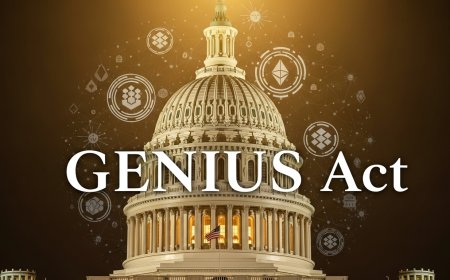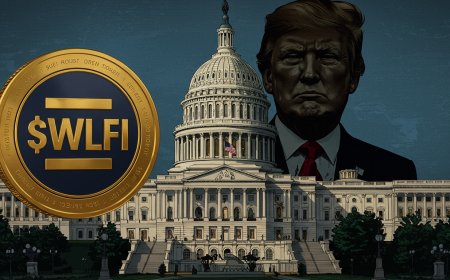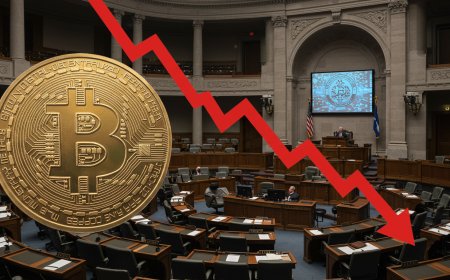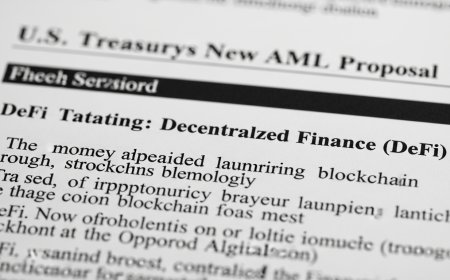Crypto Week: House Passes Three Major Bills Including Anti‑CBDC Act
Congress advanced three key bills—GENIUS, Clarity, and Anti‑CBDC—during Crypto Week, pushing U.S. digital asset frameworks forward.
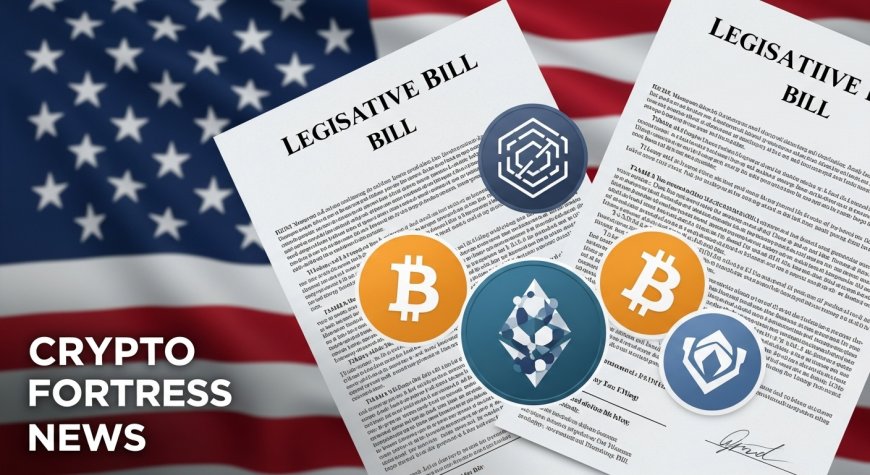
Crypto Week: House Passes Three Major Bills Including Anti-CBDC Act
The U.S. House of Representatives made history this week by advancing three landmark cryptocurrency bills during what Republican leadership dubbed "Crypto Week." The House of Representatives looks forward to considering the CLARITY Act, the Anti-CBDC Surveillance State Act, and the Senate's GENIUS Act as part of Congress' efforts to make America the crypto capital of the world, marking a pivotal moment in America's digital asset regulatory landscape.
Historic Legislative Victory After Initial Setbacks
The path to victory wasn't without obstacles. Twelve hardline House Republicans tanked a procedural vote on Tuesday over concerns with cryptocurrency legislation the chamber is preparing to consider, bringing the floor to a standstill. However, after intervention and negotiations, the resolution was passed after hours of procedural limbo by a vote of 217 to 212, with the voting session lasting over ten hours—breaking recent House voting duration records.
The Three Game-Changing Bills
1. The GENIUS Act: Stablecoin Regulation Framework
The GENIUS Act is the first major crypto legislation ever passed by Congress, establishing a comprehensive regulatory framework for the $250 billion stablecoin market. The GENIUS Act establishes a regulatory framework for the $250 billion market for stablecoins, a type of cryptocurrency tied to the value of an asset like the U.S. dollar.
This legislation is expected to bring significant changes to the stablecoin ecosystem by providing regulatory clarity and potentially encouraging more competition. Currently, the stablecoin market is largely dominated by major players like Circle and Tether, but the GENIUS Act could open doors for new entrants by establishing clear compliance standards.
2. The Digital Asset Market Clarity Act (CLARITY Act)
The Digital Asset Market Clarity Act aims to regulate crypto by establishing roles for the Securities Exchange and Commodity Futures Trading Commissions in regulating digital tokens. The bills aim to define Bitcoin as a commodity, block a Federal Reserve issued CBDC, and regulate stablecoins while protecting decentralized assets.
This bill addresses one of the crypto industry's longest-standing concerns: regulatory uncertainty. By clearly defining which agency oversees which types of digital assets, the CLARITY Act provides the framework businesses need to operate with confidence in the U.S. market.
3. The Anti-CBDC Surveillance State Act
The third bill takes a strong stance against a Federal Reserve-issued central bank digital currency (CBDC). The bill is expected to pass in a vote scheduled for Wednesday, representing a significant policy position that aligns with concerns about government surveillance and financial privacy.
Market Response and Industry Impact
The advancement of these bills has generated significant positive sentiment across cryptocurrency markets. The legislation package addresses three critical areas that have long concerned crypto industry participants:
- Regulatory clarity for digital asset classification and oversight
- Stablecoin standardization to boost institutional adoption
- Privacy protection against potential government overreach through CBDCs
Financial services industry experts suggest that these bills could position the United States as a global leader in cryptocurrency regulation, potentially attracting more blockchain businesses to establish operations domestically.
Congressional Leadership and Bipartisan Support
House Committee on Financial Services Chairman French Hill (AR-02), House Committee on Agriculture Chairman GT Thompson (PA-15), and House Leadership announced that the week of July 14th will be "Crypto Week". The designation of an entire week to cryptocurrency legislation demonstrates the growing importance of digital assets in congressional priorities.
Despite some initial resistance from conservative members, the bills ultimately secured enough support to advance through the procedural hurdles. The lengthy voting process highlighted the significance of these measures and the careful deliberation required for such groundbreaking legislation.
What's Next: Senate Consideration
While the House passage represents a major milestone, these bills now face consideration in the Senate, where their fate remains uncertain. The cryptocurrency industry and advocates are closely monitoring the Senate's response, as final passage would require approval from both chambers of Congress.
The timing of these bills aligns with the broader Trump administration's pro-cryptocurrency stance, potentially creating favorable conditions for Senate consideration. Industry observers suggest that the momentum from "Crypto Week" could help build support for digital asset legislation in the upper chamber.
Implications for the Crypto Industry
The passage of these three bills could have far-reaching implications for the cryptocurrency ecosystem:
For Stablecoins: The GENIUS Act may encourage innovation and competition in the stablecoin space while providing consumers with greater confidence in these digital assets.
For Digital Assets: The CLARITY Act's regulatory framework could reduce compliance costs and legal uncertainty for cryptocurrency businesses.
For Privacy: The Anti-CBDC Act signals strong congressional support for financial privacy and resistance to government-issued digital currencies.
Global Competitive Positioning
As other jurisdictions develop their own cryptocurrency regulations, these bills could help maintain America's competitive edge in the global digital asset race. The legislation comes at a time when the European Union's Markets in Crypto-Assets (MiCA) regulation has already established comprehensive crypto rules, and other nations are rapidly developing their own frameworks.
The House's action during Crypto Week represents a significant step toward establishing the United States as what Republican leadership calls "the crypto capital of the world." Whether these bills ultimately become law will depend on Senate action and potential presidential approval, but their House passage marks a historic moment in American cryptocurrency policy.
This article provides general information about cryptocurrency legislation and should not be considered as financial or legal advice. Readers should consult with qualified professionals for specific guidance related to digital assets and regulatory compliance.
What's Your Reaction?
 Like
0
Like
0
 Dislike
0
Dislike
0
 Love
0
Love
0
 Funny
0
Funny
0
 Angry
0
Angry
0
 Sad
0
Sad
0
 Wow
0
Wow
0













